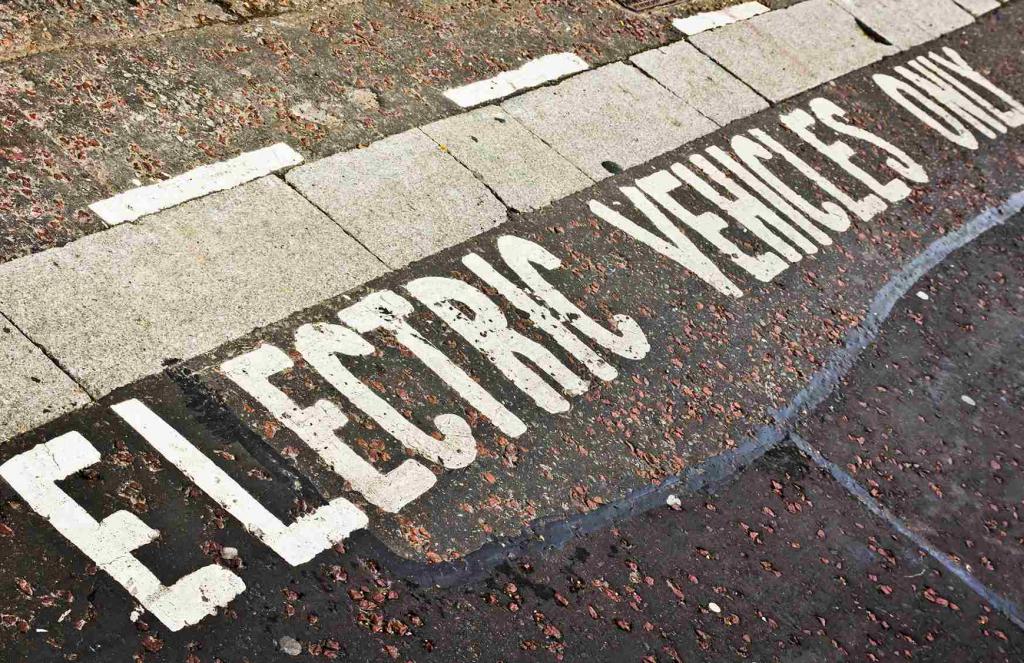Thessaloniki gets ready for its metro launch in November
The underground rapid transit lines have been under construction for almost two decades due to various project delays
 TheMayor.EU logo
TheMayor.EU logo 
Some cities allow free parking only for vehicles that are using a charging station, though it is unclear for how long , Source: Depositphotos
Many municipalities instituted privileges for EVs to promote sustainable mobility. Now, a lot more people are driving electric, so maybe it’s time to normalise legislation
After years of local initiatives to promote the purchase of electric cars, some cities in Germany are now rolling back on those incentives. As the DPA reports, city officials claim that the time of fiercely promoting electric mobility is over and now people need better charging infrastructure to cope with their growing popularity.
The report focuses on three cities in Lower Saxony – all of which have announced an end to free parking for electric vehicles at some point in 2022. Local leaders explain that the incentives were initially aimed at popularising sustainable vehicles. Now, as that goal has been reached, it is time to take back some privileges.
Recently, city officials in Göttingen decided that starting 1 July, parking fees will also apply to electric cars in public parking spaces. In Braunschweig, fees came back at the start of the year, while Nordhorn took away free parking in February after applying the measure for just four years.
Nordhorn officials continued by explaining that in 2019 there were just 35 electric cars registered in the municipality. In 2022, that number grew to 1,000. The city of Braunschweig, where free parking for electric vehicles was introduced in 2014, is also abandoning the practice because of the constantly growing demand and a lack of charging stations – much-needed infrastructure to support the sector.
While the data suggests that the share of electric cars in Germany is clearly rising, they are a long way off from becoming the norm. Also, projections do not even suggest that they will over conventional vehicles any time soon.
According to Statista, in 2018 electric vehicles made up just 0.3% of the total number in Germany. That grew to about 0.5% by 2019 and more than doubled to 1.2% in 2020. Researchers suggest that the country would experience an acceleration effect in the coming years, with the popularity of electric cars on the rise worldwide and fossil-fuelled vehicles slowly losing their grip on the market.
Projections claim that, if current trends continue, in 2025, electric cars will make up 11.1% of the total fleet in Germany, while that number would rise to 24.4% by 2030 – still well below the halfway point.

The underground rapid transit lines have been under construction for almost two decades due to various project delays

Now you can get your wine in Talence by paying directly in Bitcoin

That’s because the state has to spend money on updating the railway infrastructure rather than subsidizing the cost of the popular pass

Rethinking renewable energy sources for the urban landscape

The examples, compiled by Beyond Fossil Fuels, can inform and inspire communities and entrepreneurs that still feel trepidation at the prospect of energy transition

Now you can get your wine in Talence by paying directly in Bitcoin

The 10th European Conference on Sustainable Cities and Towns (ESCT) sets the stage for stronger cooperation between the EU, national and local level to fast track Europe's transition to climate neutrality.

At least, that’s the promise made by the mayor of Paris, Anne Hidalgo

The underground rapid transit lines have been under construction for almost two decades due to various project delays

At least, that’s the promise made by the mayor of Paris, Anne Hidalgo

Hostal de Pinós is located in the geographical centre of the autonomous region

Despite its church-y name, the district has long been known as the hangout spot for the artsy crowds

Urban dwellers across the EU are having a say in making their surroundings friendlier to people and the environment.

Forests in the EU can help green the European construction industry and bolster a continent-wide push for architectural improvements.

Apply by 10 November and do your part for the transformation of European public spaces

An interview with the Mayor of a Polish city that seeks to reinvent itself

An interview with the newly elected ICLEI President and Mayor of Malmö

A conversation with the Mayor of Lisbon about the spirit and dimensions of innovation present in the Portuguese capital














